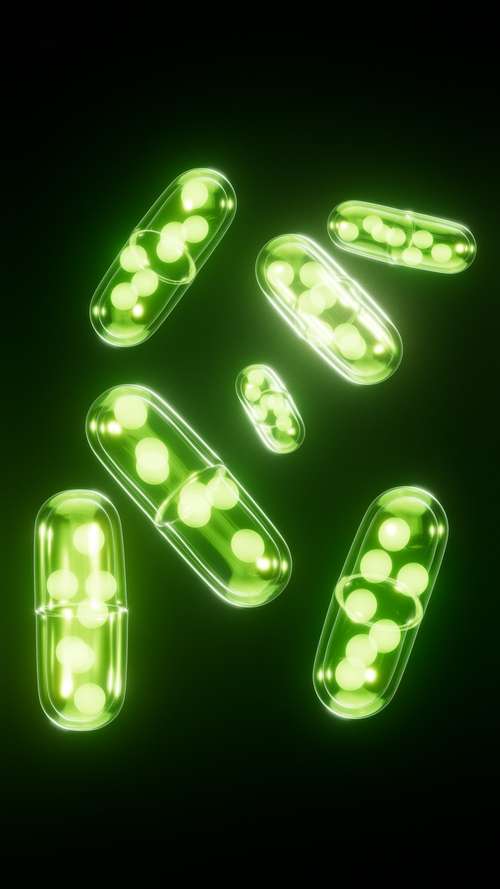It’s amazing how our gut acts like a bustling city, full of life and essential workers— the gut bacteria that keep our systems humming. When medications like antibiotics and other prescriptions enter the picture, the delicate balance of this internal metropolis can be thrown off in ways we’re only beginning to understand. Have you ever wondered how taking a simple pill could impact your long-term gut health?
Recent studies shine a light on the lasting effects that antibiotics and six other common medications can have on the intestinal flora. What begins as a treatment often ends up leaving behind a trail of changes that may stick around for years. Not only does this disrupted gut microbiome hint at potential digestive health issues, but it might also be linked to broader medical conditions, impacting our overall wellbeing.
Antibiotics and Their Long-Term Impact on Gut Health
In this section, we dive straight into the world of antibiotics and their notorious reputation in microbiome research. This introductory overview sets the stage by explaining how these drugs affect gut bacteria, sometimes far more than we’d expect.
Antibiotics are often the first line of defense in combating bacterial infections. Yet, they don’t just target the harmful microbes—they also wipe out beneficial gut bacteria. When these drugs disturb the intestinal flora, it disrupts the balance of your gut microbiome, which in turn can impact everything from digestion to your immune system’s function. Think of it as a renovation project where you end up demolishing more than just the damaged wall.
Established experts in gut health have noted that the effects of these antibiotic treatments can persist, altering digestive health long after the course of treatment is complete. It’s like trying to fix an old clock by replacing a single gear, only to find the mechanism still out of sync. We’re now aware that the antibiotic effects linger and may set the stage for issues like inflammatory bowel syndrome and even metabolic disorders later in life.
The discussion about medication side effects has evolved. It’s not just about the immediate relief from infection; doctors now also weigh the potential risk to the microbiome balance. Maintaining a healthy gut is crucial because it supports our immune response and overall well-being.
Six Other Medications That Disrupt the Gut Microbiome
This section takes a closer look at six other types of medications that have been shown to have a microbiome impact. Here, the focus is on how these common prescriptions may meddle with intestinal flora much like antibiotics do.
Proton pump inhibitors (PPIs), used to treat acid reflux, have been widely studied for their effects on gut bacteria. When you reduce stomach acid significantly, you’re also reducing the natural barrier that limits the growth of harmful bacteria. This can lead to a disrupted gut microbiome and set off digestive health issues. Imagine your stomach as a secure fortress—when the defenses are lowered, invaders find an easy entry.
Nonsteroidal anti-inflammatory drugs (NSAIDs) such as ibuprofen can also affect the gut by causing irritation and inflammation in the intestinal lining. When your gut lining is disrupted, it becomes harder for your body to regulate what enters your bloodstream, leading to potential systemic effects on gut health.
Next on the list are antidiabetic medications like metformin. While they play a key role in managing blood sugar levels, studies have indicated a connection between these drugs and microbiome disruption. Patients have reported changes in digestive health, including symptoms that mirror those seen when the gut bacteria are out of balance.
Then, there are antidepressants. With their growing use, research is beginning to uncover how they may inadvertently alter microbiome balance. Some individuals have noted digestive side effects, suggesting an unexpected link between medication gut effects and mental health outcomes.
Another group includes medications for high blood pressure. By impacting blood flow, these drugs might indirectly disrupt the normal function of gut bacteria and compromise intestinal flora. This scenario is similar to a small town losing its essential services gradually, making everyday life increasingly difficult.
Finally, drugs used to treat cholesterol can also modify the gut environment. Although designed to manage heart health, emerging research implies that their long-term use might adversely affect the natural microbial community, creating challenges for digestive health.
What Can We Do to Restore Microbiome Balance?
After hearing about the antibiotic gut impact and medication gut effects, you’re probably asking: ‘What steps can I take to safeguard my gut health?’ This final section offers some practical advice and insights into restoring microbial balance.
First and foremost, if you’re prescribed these medications, have an honest conversation with your healthcare provider. Ask them about the potential long-term effects on your gut microbiome and explore alternative treatments or complementary practices. It’s all about weighing the benefits against the possible disrupted gut microbiome risks.
Probiotics and prebiotics are becoming popular buzzwords, and for good reason. Supplementing your diet with foods rich in these components might help in rebuilding your gut bacteria after a course of antibiotics or any disruptive medication. Fermented foods like yogurt, sauerkraut, and kimchi can serve as simple yet effective ways to reintroduce beneficial bacteria into your digestive system.
It might also help to keep your diet varied and nutrient-dense to further support gut health. Imagine nurturing your gut like tending to a garden; the more diverse the plants, the more resilient the ecosystem. Staying mindful of your dietary choices is a powerful tool in mitigating some medication side effects.
Stress management and regular physical activity are also crucial factors. The mind and gut are closely connected, so practices like mindfulness meditation or even a brisk walk can promote overall well-being and help counterbalance the potential negative effects of these treatments. The road to recovery might be long, but each small step counts!
The Broader Implications for Gut and Overall Health
This final section reflects on the importance of understanding our gut microbiome as a cornerstone of overall health. The connection between medications and gut health is more than just a passing trend—it’s a vital part of our well-being narrative today.
When we talk about microbiome research, we’re really discussing the foundation of our immune system and overall vitality. Many specialists now emphasize that preserving gut health can reduce the risk of developing chronic illnesses such as autoimmune disorders and metabolic conditions. Appreciating this link can lead us toward more personalized and cautious approaches in our health decisions.
Personal stories and shared experiences are proving the point. Many patients have observed changes in their energy levels and digestive health after altering their medication routines. While the side effects of these drugs can be challenging, awareness is the first step in fostering a balanced approach to treatment.
All in all, understanding that medications—whether they be antibiotics or others—carry the potential for a significant microbiome impact is empowering. You can take charge of your health with diets, supplements, and lifestyles that support a robust gut environment. There’s always something you can do to help your intestinal flora bounce back and thrive.
In conclusion, the disrupted gut microbiome observed with antibiotics and other medications highlights a delicate yet critical balance in our bodies. It’s a call to remain vigilant about the long-term consequences of our prescriptions and to always seek alternatives or complementary strategies that can safely restore our gut bacteria. Your gut health matters, and nurturing it paves the way for better overall health and well-being!




